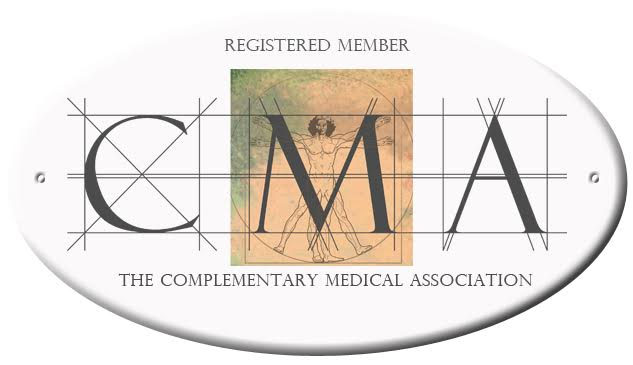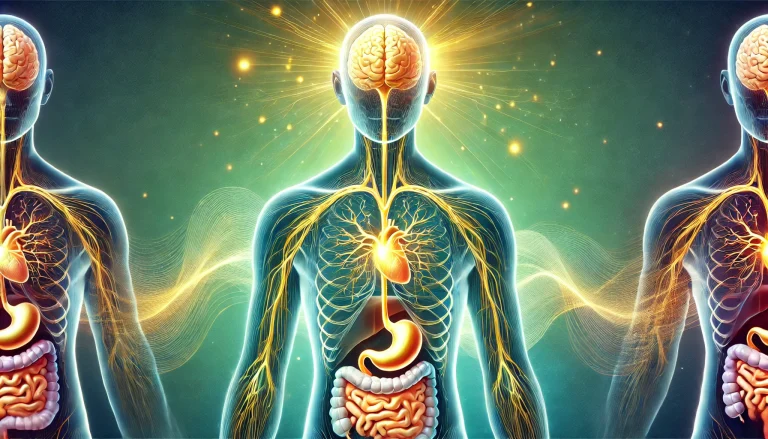Introduction
“Almost everything will work again if you unplug it for a few minutes, including you.” — Anne Lamott
It is crucial to recognize from the outset that self-care is not a luxury but a necessity. It’s a far deeper and more sustainable lifestyle than occasional indulgences, although these are nice and should be enjoyed! This post introduces practical self-care tips from a deeper perspective, uncovers its importance, and provides a guide on how to incorporate it into your daily life for a more balanced and fulfilling existence—no matter where you are.
In today’s fast-paced world, self-care is often overlooked or misunderstood. The Health and Wellness industry often focuses on making you feel inadequate so that you buy products rather than truly helping you blossom into the best version of yourself. Self-care is frequently marketed as spas, treatments, and retreats—momentary and fleeting experiences. But true self-care practices implemented into a daily lifestyle delivers lasting transformation that is anchored within your Being.
My Self-Care Story
I’ve just turned 48, and it’s only in the past three years that I’ve truly awoken to self-care. It took me several downward spirals—physical depletion, emotional burnout, psychological dissociation, and resultant dis-ease, disorder, and even depression—over a few decades to finally realize and accept that self-care is important.
‘Doing good’ for others was a cover-up, ‘being spiritual’ was an escape, ‘chasing love’ was a delusion, and striving for recognition through a career was, to put it bluntly, sh*t-brained. Dividing myself into ‘good’ and ‘bad,’ ‘higher’ and ‘lower,’ was destructive and self-sabotaging, feeding shame, guilt, and self-judgment.
I am grateful beyond words for my two years in that special little community of Mdumbi, surrounded by such powerful Feminine energy—from my dearest 19-year-old soul sister to my 40-something birthday-buddy-sister. That abundance of Love gently and patiently caressed me out of myself, enabling me to see, accept, and begin to nurture myself.
ALL of myself. Equally. To celebrate and love both the spiritual healer and recovering porn addict, the Ayurvedic Nutritionist and Gut Health Coach and the phantom binge-eater, the peaceful meditator and the raging, angry tornado—all equally.
The Gift of Self-Care
The practice of self-care has set me free, gently carrying me into a space of self-contentment. It’s a gift I can only repay by paying it forward.
What is Self-Care?
Definition
Self-care refers to the practice of taking deliberate action to preserve or improve one’s overall well-being in a sustainable way. It involves daily activities that nurture and rejuvenate the body, mind, and spirit, creating space for you to grow into the best version of yourself. Self-care is a process, not a one-time event.
Holistic Approach
A holistic approach to self-care means addressing all aspects of well-being. This includes physical health, mental clarity, emotional stability, and spiritual fulfillment. By considering the whole person rather than focusing on individual parts, we can achieve a more balanced and harmonious life. Isn’t that the goal?
The Benefits of Self-Care
Physical Benefits of Self-Care
- Improved Physical Health: Regular self-care activities, such as exercise, proper nutrition, right digestion, meditation, and mindfulness, lead to better overall health. These practices help maintain a healthy weight, boost immunity, and reduce the risk of chronic diseases like diabetes, heart disease, and autoimmune disorders.
- Increased Energy: Taking time to care for your physical needs naturally increases energy levels, making you feel lighter and more vibrant.
Mental Benefits of Self-Care
- Enhanced Mental Clarity: Mindfulness practices and mental self-care activities, such as meditation and mindful eating, help clear the mind and bring you deeper into the Present Moment, improving focus and concentration.
- Reduced Stress and Anxiety: Regular self-care significantly reduces stress and anxiety, leading to a calmer, more peaceful mind, a regulated nervous system, and a more relaxed body. This translates into a more fulfilling life experience.
Emotional Benefits of Self-Care
- Increased Emotional Resilience: Self-care practices help us manage emotions better, making us more resilient in the face of life’s challenges. Although life’s challenges never end, our ability to manage how we respond to them can improve.
- Better Mood Management: Engaging in activities like journaling, therapy, and hobbies helps regulate mood and uplifts overall emotional well-being.
Spiritual Benefits of Self-Care
- Greater Inner Peace: Spiritual self-care practices, such as yoga, meditation, surrender, or spending time in nature, can bring a deep sense of peace and fulfillment.
- Strengthened Connection to Self and Purpose: Taking time for introspection and spiritual growth helps you connect more deeply with your Inner Self and uncover a deeper purpose, bringing with it a sense of peace and contentment.
Common Myths About Self-Care
Myth 1: Self-Care is Selfish
It’s a common misconception, sold to us by a brutally demanding world, that taking time for yourself is selfish. In reality, though, self-care enables you to be the best version of yourself, which benefits not only you but also those around you. When you are well-rested, restored, nourished, and emotionally balanced, you naturally give more to others. The opposite is also true: no matter how much you deprive yourself to serve your boss, friends, relationships, or children, you end up giving far less, creating dysfunction and a sense of emptiness.
Myth 2: Self-Care is Expensive
Self-care does not have to be costly at all. True, authentic self-care has nothing to do with spa treatments, luxury retreats, or expensive products. Most meaningful and deeply impactful self-care activities are free or highly affordable, like taking a walk in nature, practicing yoga, meditation, sitting quietly with yourself and sipping healing teas, breathwork at home, preparing your own meal, lighting incense, reading a spiritual book, massaging yourself, switching off devices 30 minutes before bedtime, or enjoying a hot bath. Self-care is about making time for activities that nourish you deeply, not about spending money on an event.
Myth 3: Self-Care Takes Too Much Time
While it’s true that some self-care practices require time, many can be incorporated into your daily routine without significant time investment. Even a few minutes each day for deep breathing exercises or a quick stretch can make a big difference.
When I began, I literally only had the capacity for a 60-second routine each day. Any more than that, and I resisted, burned out, and ran away from it. But when I made peace with 60 seconds a day being enough, I began to show up daily. That was key. Over a few months, this naturally increased because of the positive impact I could instantly feel. It grew into a steady routine of one hour, six mornings out of every seven. It has since spilled into the rest of my day—in how I eat, drink tea, and avoid mindless chatter. With zero effort, it grew from that little seed of 60 seconds every morning. For that, I thank Mike Chang.
The Foundation for a Balanced Life
Holistic Lifestyle
A holistic lifestyle integrates various self-care practices to create balance in all areas of life. This approach ensures that no aspect of our well-being is neglected. For me, integrating all aspects of my being into one lifestyle is what brought balance. I tried many paths, all ancient and powerful, but I found each one lacked a certain aspect of myself that needed nourishing. When I began to integrate all the little bits of myself into one lifestyle though, is when I began to experience balance.
Daily Routines
Routine was always an “F-word” for me, but I’ve realized that another word for routine is rhythm. My heart, the Sun, the Moon, and the ocean tides all beat to a rhythm. Incorporating Self-Care into this daily rhythm is crucial. You only need to begin with a 60-second investment—as long as you commit to repeating it daily.
Long-Term Benefits
In the long run, consistent Self-Care leads to improved physical health, better emotional stability, enhanced mental clarity, and deeper spiritual fulfillment. Although I’m still in the early stages, the effects are already profoundly positive. Over time, these benefits will compound, creating a more balanced and satisfying life.
Practical Tips for Getting Started
- Start Small: Begin with small, manageable self-care practices. Start with 60 seconds if that’s all you have—consistency is key.
- Set Realistic Goals: Instead of aiming for an hour of exercise every day, start with 10 minutes and gradually increase. Realistic goals build consistency and prevent overwhelm.
- Track Your Progress: Use a journal to log your self-care activities and reflect on how they make you feel. Tracking your progress allows you to see the positive impact of your efforts over time.
Moving Forward
Take a moment to reflect on your current self-care practices. Do this with no judgment, knowing that who you are and where you are is more perfect than you can imagine.
- Make a note in your journal.
- Say a little prayer to your future self and ask for help.
- Say a prayer to your ancestors and ask for their help.
Give yourself a hug as you remember that self-care is a journey, not a destination. It’s about making small, consistent changes that lead to a healthier, more balanced version of life, as defined by you—and nobody else.
FREE Giveaway
Start a 12-Day Journey of Self Care and Inner Healing Today Click Here . . . it’s FREE 🙂
Community – Let’s Grow Together
Share your experiences, comments, and questions below. This is a safe space where your voice is encouraged, welcomed, and appreciated.
Further Reading
- The Courage to Be Disliked by Ichiro Kishimi and Fumitake Koga
- Self-Compassion: The Proven Power of Being Kind to Yourself by Kristen Neff
- The Four Agreements by Don Miguel Ruiz






